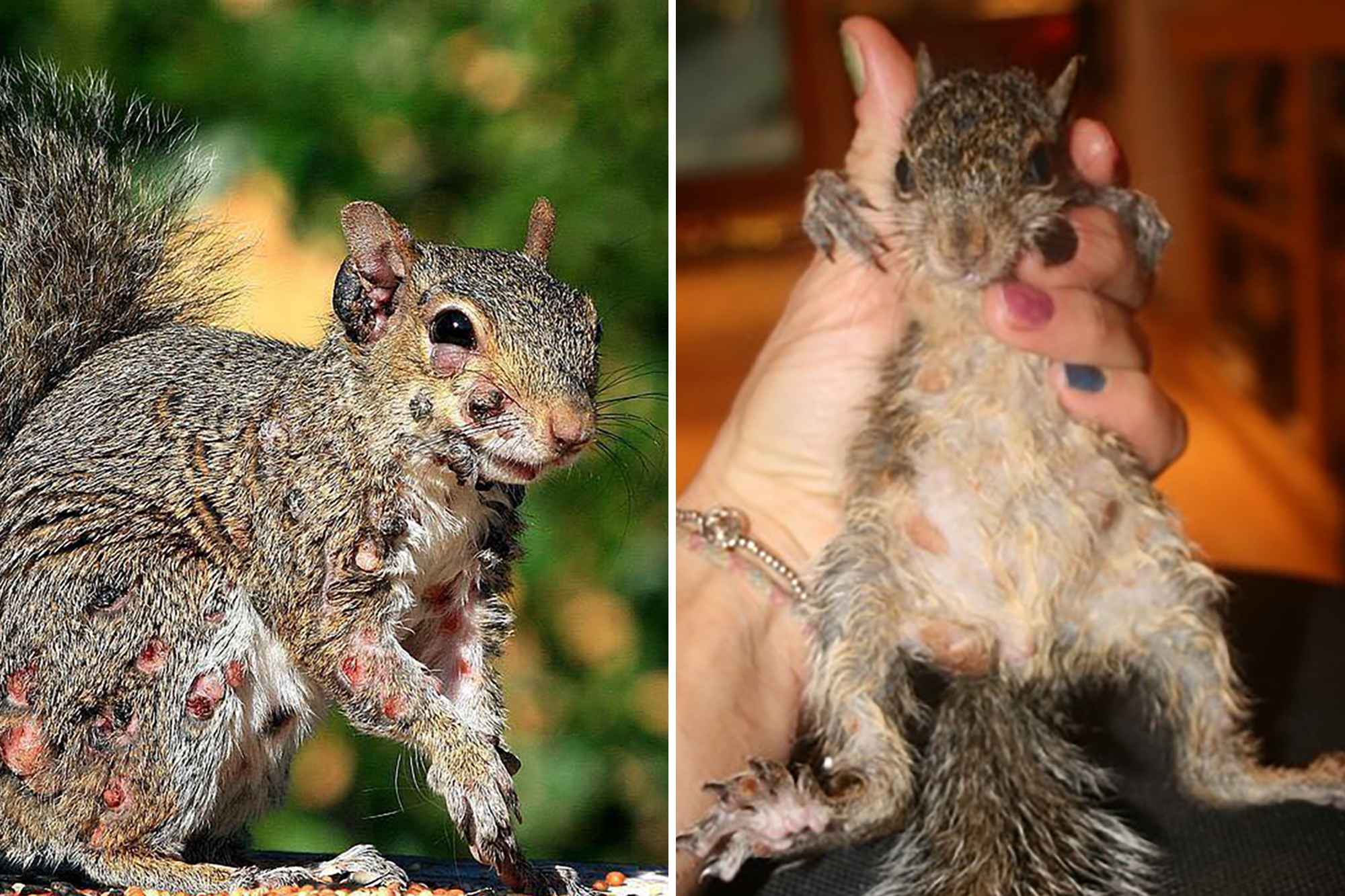URGENT UPDATE: Disturbing reports reveal that squirrels covered in pus-filled, wart-like tumors are being spotted across backyards in the United States and parts of Canada. These grotesque gray squirrels, often referred to as “zombie squirrels,” have been seen in alarming numbers as social media users share photos and sightings from locations such as Maine.
The surge in sightings began in mid-2023, but reports have intensified this summer, alarming residents and wildlife experts alike. A Reddit user shared a chilling encounter on July 31, describing a gray squirrel with a tumor on its mouth, stating, “At first I thought it was eating something from my front beds, but then I realized it was on its face.”
Wildlife experts have confirmed that these animals are likely suffering from squirrel fibromatosis, a viral skin disease caused by the leporipoxvirus. This virus spreads through direct contact between healthy squirrels and the lesions or saliva of infected animals, resembling how herpes spreads among humans.
Despite their alarming appearance, experts like Shevenell Webb from Maine’s Department of Inland Fisheries and Wildlife assure the public that these squirrels are not a threat to humans, pets, or birds. Webb stated, “It’s like when you get a large concentration of people. If someone is sick and it’s something that spreads easily, others are going to catch it.”
The concentration of infected squirrels may be linked to bird feeders, where saliva or fluid from sick animals can contaminate uneaten seeds, exposing other squirrels to the virus. Webb cautions residents to enjoy watching birds but be mindful of the potential for attracting infected squirrels, saying, “Unfortunately, you can attract multiple [squirrels] to that feeder and risk exposure if one has the virus.”
Experts advise leaving the squirrels alone to heal naturally, as the tumors often clear up within four to eight weeks. Webb warns against attempting to capture infected squirrels, stating, “It is naturally occurring and will run its course in time.”
As these “zombie squirrels” become a hot topic, another viral outbreak is making headlines. The cottontail papilloma virus, also known as Shope papilloma virus, is causing cottontail rabbits in Colorado to sprout black, tentacle-like spikes from their heads, prompting authorities to warn the public to steer clear of these mutated animals.
The unsettling sightings of both the infected squirrels and the rabbits underscore the need for vigilance among pet owners and wildlife enthusiasts. As these developments continue to unfold, residents are encouraged to monitor their surroundings and report any unusual animal behavior to local wildlife authorities.
Stay tuned for more updates on this developing story as experts work to understand the implications of these viral outbreaks.
